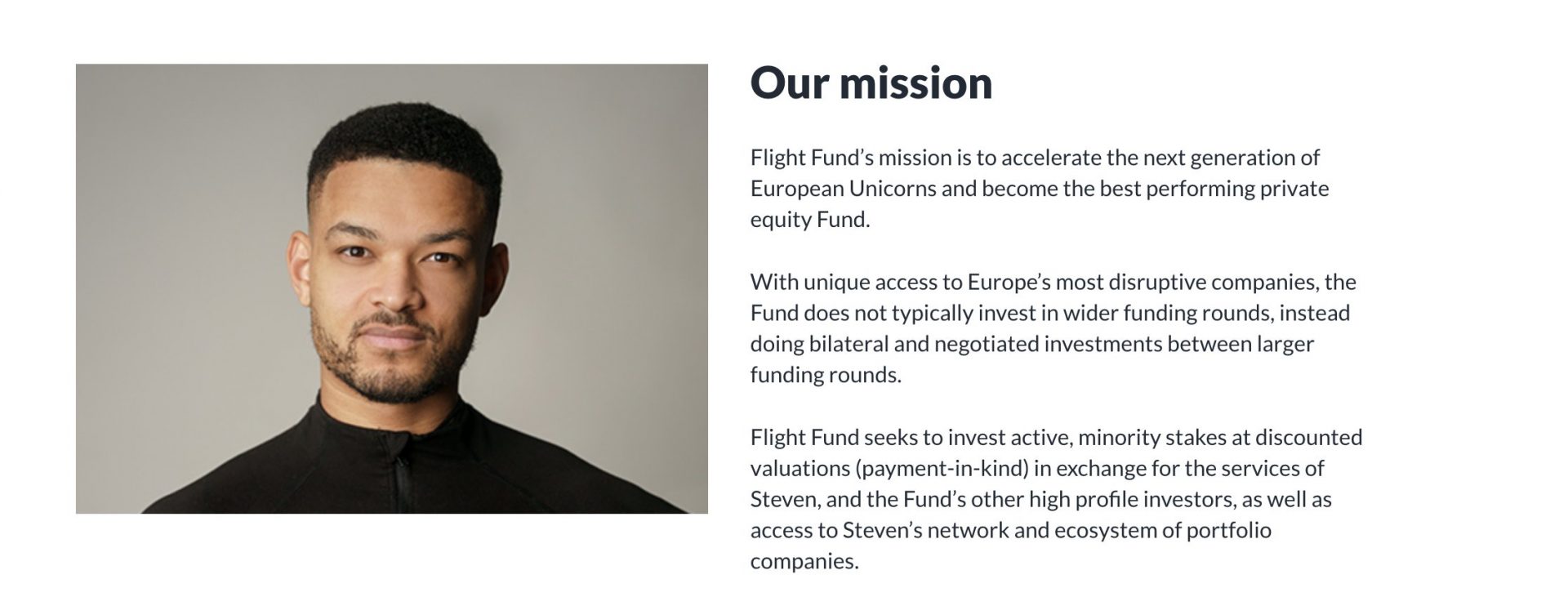Founders and investors have criticised Steven Bartlett’s recently launched startup fund after pitch decks emerged showing it is asking for discounted valuations on investments in exchange for access to the Dragon’s Den star’s “network”.
The slide deck, posted to equity crowdfunding platform Seedrs but since removed, show that Bartlett’s Flight Fund is looking to take minority stakes in companies with a valuation of “at least” $100m that are approaching an exit in the next one to two years.
The fund is seeking a discount that is “typically 50%” for the “services of Steven” and what is “effectively a payment-in-kind”, the slides said.
Bartlett, who is also known for hosting “The Diary of a CEO” podcast, launched the Flight Fund in January.
The $100m fund said it is “structured to be the most successful private equity fund in Europe” and will invest in space, commerce, biotech, technology, blockchain and health startups.
The now-deleted pitch deck slide, which was looking to raise capital from high-net-worth investors, shines a light on the deal terms that Bartlett’s fund is offering startups.
One slide said: “Flight Fund seeks to invest active, minority stakes at discounted valuations (payment-in-kind) in exchange for the service of Steven and the fund’s other high-profile investors, as well as access to Steven’s network and ecosystem of portfolio companies.”

This deal structure has attracted strong criticism from investors. UKTN spoke to half a dozen VCs and founders and while some did not wish to be named, all said the fund terms were uncommon and problematic.
VCs generally provide networking and introductions as part of their relationship, not as a bargaining tool, they said.
Francesco Perticarari, a deep tech investor and general partner at Silicon Roundabout Ventures, told UKTN that it’s another “financial vehicle looking at venture capital like a private equity game where you make money by screwing up founders that are either ignorant or desperate for cash”.
Daniel Sawko, founder of investor search engine Shipshape.vc, told UKTN the terms show an “inflated sense of self-worth leading to a lack of respect for other investors”.
Flight Fund declined to comment.
Questions over Steven Bartlett fund
Rob Blackie, founder of Blackie Biotech Strategy, said: “I’d be amazed if any well-run company accepted investment from this fund. If you are growing fast, planning to be acquired and are worth $100m, why on earth would you give away shares at a discount rather than just paying a marketing agency?”
Earlier this month, Flight Fund made its first investment into London-based nutrition startup ZOE. The investment consisted of $2m in cash with a further $500,000 in commitments. UKTN has approached ZOE for comment.
Perticarari added: “The best VC funds help companies win and de-risk by taking a portfolio approach. The worst players – and Flight Fund seems to be going for the title given their self-publicised approach – try to play the vultures on the leftovers. But it never ends well for them.
“No top-tier VC ever made real money that way. And in falling these ‘clever’ ones, unfortunately, also take a bunch of founders with them.”
Criticism of Bartlett’s Flight Fund follows confusion over the valuation of his previous venture Social Chain.
Last month, the digital marketing company was sold for £7.7m. This raised eyebrows because Bartlett previously stated he “took his company public at 27 years old, reaching a market valuation of $600m” before stepping down.
Bartlett clarified that the Social Chain brand sold for £7.7m is distinct from Social Chain AG, a much larger entity created through a merger with the original Social Chain in 2019.



